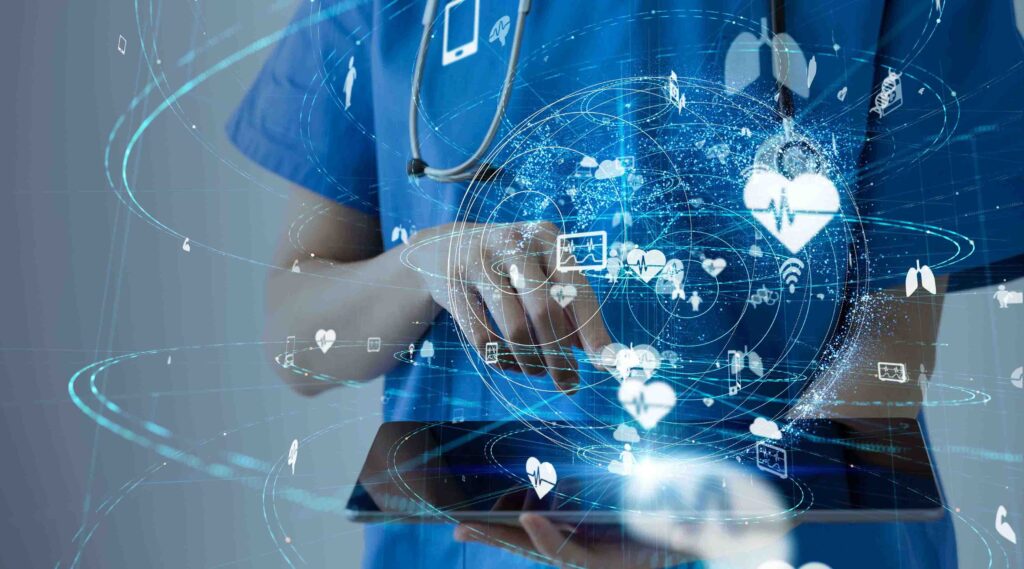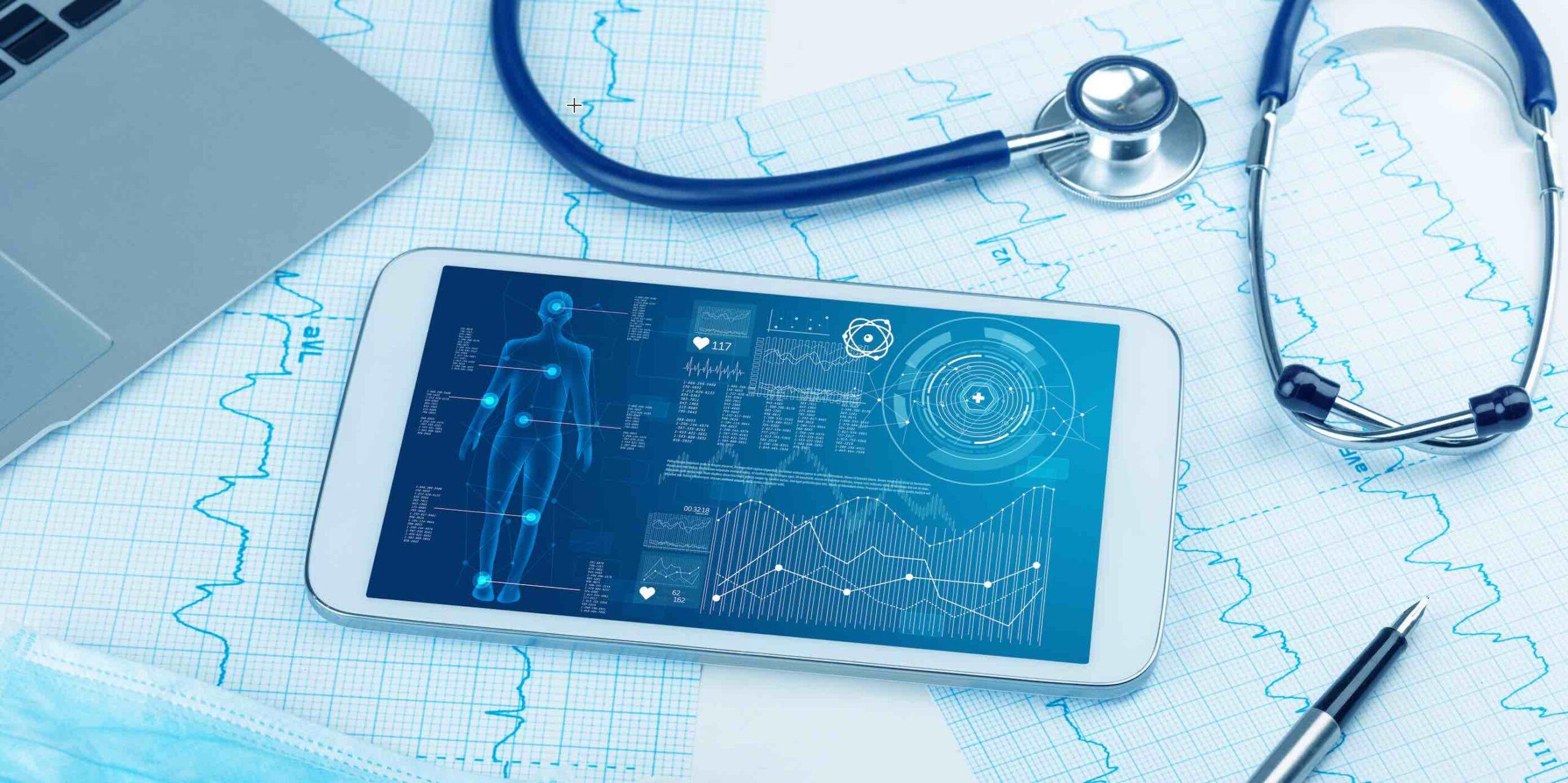“Great challenges meet great opportunities in healthcare digitalisation”
In this blog post, Olle Bergdahl, Chief Digital Officer at Uppsala University Hospital and former Programme Director for IoT Sweden, writes about the opportunities and challenges of healthcare digitalisation. Key technologies such as IoT and AI will play a major role, he says.
In the early 1900s, healthcare was cheap, inefficient and quite dangerous. Today, healthcare is efficient, safer for patients and much more expensive.
These developments have led to higher survival rates for many previously incurable diseases and helped us live longer and healthier lives. But with these advances come new challenges, not least the demographic change of an ageing population. Fewer and fewer people of working age will have to support more and more people.
Combining digitalisation with system innovation
Welfare’s biggest challenges can be found in healthcare. Skills provision and securing the necessary staffing, both in the short and long term, is an almost unsolvable equation. We need to think and act differently to safeguard our common welfare. To solve the really complex problems, I see great benefits if we, going forward, can combine digitalisation with system innovation.
System innovation aims to address complex problems and challenges that cannot be solved through single, isolated innovations. At Uppsala University Hospital, digitalisation is integrated into our four core missions: care, education, research and collaboration. Digitalisation and innovation are important, not only to strengthen our competitiveness as a leading university hospital, but also to create benefit and value for the people we serve – our patients.

IoT and other technologies enable task shifting
Task shifting is a phrase heard quite a bit at Uppsala University Hospital and other hospitals right now. Tasks normally performed by occupational categories that are currently in short supply are shifted to another occupational group that can perform them as well or better. This can free up time for healthcare professionals for more patient-centred work. Digitalisation supported by IoT, AI and similar key technologies plays an important role in enabling task shifting.
Speech recognition through artificial intelligence
The aim is to change ways of working while taking advantage of everything digital technology has to offer. One example of such efforts is the introduction of speech recognition. An AI-based solution translates speech into text. Medical record documentation takes place without delay, which increases patient safety and saves time. Another example is our development programme for healthcare logistics. There are large logistics flows in the hospital in the form of consumables, medicines, medical devices, staff and patients. We are laying the foundation for our robust logistics capability. New logistics solutions and service concepts are being created, and IoT and positioning will be natural elements going forward.
Transition to person-centred care
IoT also supports the transition to more person-centred care. Region Uppsala is procuring a solution for self-monitoring (home monitoring) of blood pressure. We have had solutions for this in diabetes care for quite a while. There is great potential to broaden the range in the future to increase the degree of self-monitoring for different patient groups with chronic diseases. When samples can be taken at home, it reduces the burden on the healthcare system, while the solutions contribute to greater security for the patient. In parallel with this, we are facing a major shift in the management of health data in our medical records systems. In collaboration with several other regions and hospitals in Sweden and internationally, we are working with open standards for health informatics. Structuring data and separating it from the application creates new opportunities to further utilise health data for healthcare and research.

Technologies promote precision medicine
We are seeing major advances in precision medicine. With the healthcare of the future, diagnosis and treatment will be based not only on general guidelines but also on an in-depth understanding of each patient’s unique genetic make-up, lifestyle and environment. We collaborate within the framework of the Precision Medicine Centre Uppsala (PMCU) to ensure that patients benefit from precision diagnostics and treatment. IoT and AI are obvious innovation tools in this change, as data collection and analysis in real time enable more personalised and efficient care.
Digitalisation connects the core missions
The development and integration of the Internet of Things (IoT) and Artificial Intelligence (AI) in healthcare is not only an opportunity, but a necessity to meet our growing challenges. If we have good access to good data, we can make good decisions – if we have access to bad data, we will make bad decisions. If I am in need of healthcare and data about me and my health is available, I obviously want it to be used.
No single actor has all the answers. But by working together, sharing experiences and lessons learned, we can create a healthier future for everyone. The Strategic Innovation Programmes are important to create ecosystems and to foster actor-driven innovation. We need to build bridges and ensure that technological advances lead to positive societal changes. If we build these bridges, new solutions and technological advances can lead to positive societal changes.
Sweden is well positioned to succeed
Historically, Sweden has come out on top in connection with major technological shifts, and I believe that we have several good opportunities to succeed again – because we can, because we want to and, above all, because we must!
Written by Olle Bergdahl

Olle Bergdahl works as Chief Digital Officer at Uppsala University Hospital. Before that, he was Programme Director for IoT Sweden and Collaboration Manager at Uppsala University.
